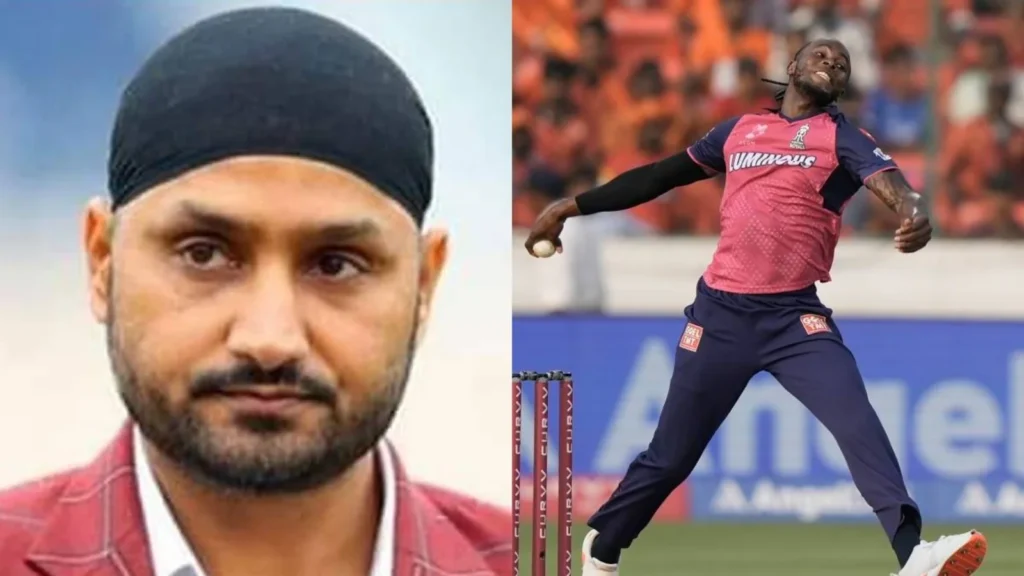Harbhajan Singh, one of India’s most celebrated off-spin bowlers and a respected cricket analyst, found himself at the center of controversy following a racially insensitive remark made during a recent commentary session. The incident, which took place during the IPL 2025 season, sparked widespread criticism, ignited a larger conversation about race and sensitivity in sports commentary, and raised important questions about the responsibilities of commentators in today’s global game.
The Incident: What Happened?
During a live broadcast of an IPL match involving the Mumbai Indians, Harbhajan Singh made a comment that many viewers found inappropriate and offensive. The remark, directed towards a player’s ethnicity, was perceived as racially insensitive and sparked immediate backlash across social media platforms.
Although Harbhajan attempted to clarify that the comment was meant in a lighthearted manner, the damage was already done. Clips of the remark quickly circulated, with fans, former players, and advocacy groups condemning the language used, stressing the need for greater cultural awareness and respect in sports commentary.
Reactions from the Cricketing Community
The cricket fraternity responded swiftly. Several former players and commentators expressed disappointment, emphasizing that the sport has grown to become a unifying platform that transcends boundaries of race, nationality, and ethnicity.
Cricket legends like Anil Kumble and MS Dhoni highlighted the importance of fostering respect and sensitivity, especially in commentary, which reaches millions globally. The IPL, being one of the most watched cricket leagues worldwide, carries a responsibility to promote inclusivity and cultural understanding.
Media houses and broadcasters also issued statements reaffirming their commitment to maintaining professionalism and respect in all forms of communication related to the game.
The Broader Context: Race and Sports Commentary
This controversy is not isolated; it reflects a larger issue that sports broadcasting has grappled with for years. The increasing diversity of players and audiences worldwide requires commentators to be aware of cultural nuances and avoid language that could be hurtful or discriminatory.
In cricket, which is played and followed by billions across multiple continents, sensitivity towards race and ethnicity is crucial. Commentators hold significant influence and play a role in shaping public opinion and promoting the spirit of the game.
Harbhajan’s Response and Apology
Following the backlash, Harbhajan Singh issued a formal apology acknowledging the mistake and expressing regret for any hurt caused by his words. In his statement, he emphasized his respect for all players and fans and assured that he would be more mindful in the future.
His apology was generally accepted, but the incident remains a reminder of how easily words can impact and the need for continuous learning and awareness, even among seasoned professionals.
Lessons for the Cricketing World
The incident involving Harbhajan Singh serves as a wake-up call for the cricket community and broadcasters alike. It highlights the necessity of:
- Cultural Sensitivity Training: Ensuring that commentators and analysts undergo regular training on cultural awareness and appropriate language use.
- Diverse Commentary Teams: Building commentary panels that reflect the diversity of the cricketing world, which can bring multiple perspectives and reduce the likelihood of insensitive remarks.
- Clear Guidelines and Accountability: Establishing firm guidelines on language and conduct during broadcasts, with clear consequences for violations.
The Role of Fans and Media
Fans and media play a crucial role in holding commentators and broadcasters accountable. Constructive criticism, coupled with open dialogue, can encourage a more respectful and inclusive environment in cricket broadcasting.
At the same time, it is important that criticism remains respectful and focused on fostering positive change rather than personal attacks.
Moving Forward
Cricket is a sport that unites people from varied backgrounds and cultures. Incidents like these underline the ongoing need to nurture respect, understanding, and empathy both on and off the field.
Harbhajan Singh’s racially insensitive commentary remark has sparked an essential conversation — one that, if taken seriously by players, broadcasters, and fans alike, can lead to a more inclusive and respectful cricketing environment.
The hope is that the cricketing world will learn from this episode, and that future commentary will reflect the diversity and unity that make the sport truly global.

